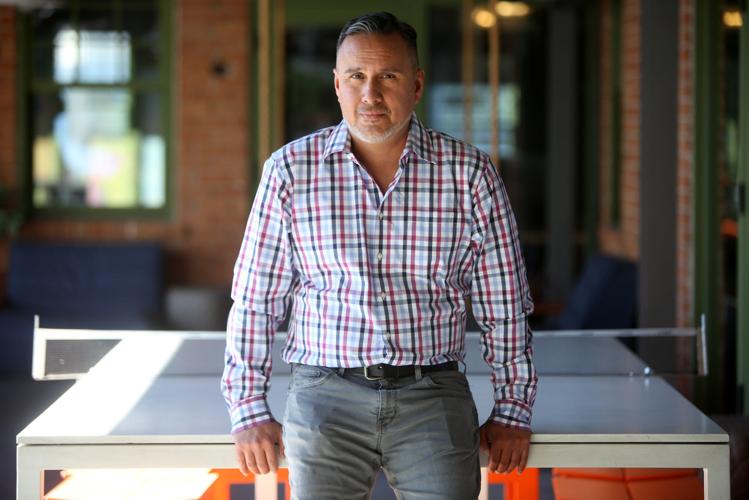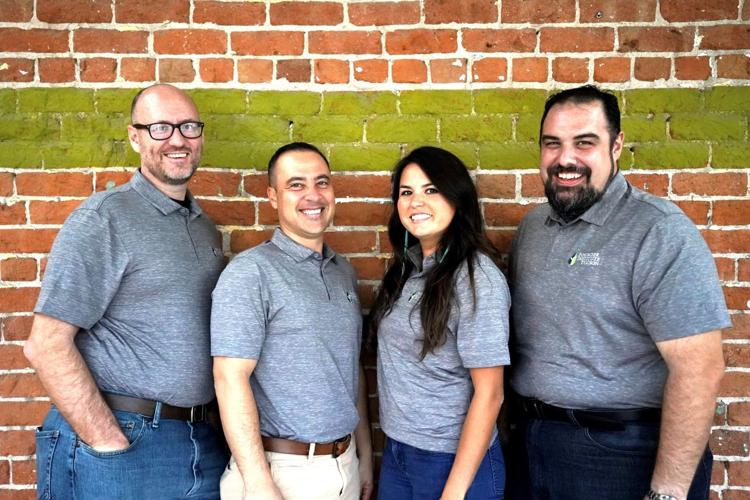Two new technology-focused business incubators are trying to help germinate the seeds of entrepreneurship in Tucson.
The incubators differ in their origins and approach but share the common goal of driving tech-based startups in the Old Pueblo.
One, Go For Vertical, is a narrowly focused software business incubator founded by a former Tucson resident who returned a few years ago.
The other, the Founder Institute, is the local chapter of a Silicon Valley-based international network of business accelerators launched in October.
Go For Vertical is the brainchild of Edward Cruz, a longtime software systems engineer who grew up in Tucson and moved back here from Austin, Texas, after starting the company in 2015.
Cruz spent 15 years in San Francisco developing websites for major retailers including the Home Depot and La-Z-Boy. He moved to Austin in 2005 and ran his own software systems consultancy but had been traveling to Tucson frequently to visit family.
He wanted to get more involved in the Tucson startup scene and began speaking at events at Startup Tucson, a nonprofit startup-venture community.
In 2015, he launched Go For Vertical in Tucson, offering a program of business development called Vertical that intensively evaluates a business concept with a focus on the wider market of stakeholders.
“Vertical offers a deep dive to figure out what they need to do before they do any coding or design,” said Cruz.
One of the companies Cruz helped so far was successfully launched and quickly acquired in an unusually fast exit for investors.
In 2015 Cruz met one of his first clients, University of Arizona graduate Sam Garst, who with fraternity brother Gavin Gene had founded OneGreek, a mobile app that connects members of fraternities and sororities.
Cruz coached Garst and Gene and helped them develop initial releases of their app and they ended up winning acceptance to Capital Factory, a prominent business incubator in Austin.
Cruz said that at his urging to lower initial programming costs, Garst and Gene hired a team in Morocco to do initial coding work, saving tens of thousands of dollars.
In 2016, OneGreek was acquired for an undisclosed sum by a company specializing in Greek-oriented clothing and accessories that was also part of Capital Factory.
“They had the total Cinderella story,” he said.
Go For Vertical has worked with several other companies, including Vidi VR, a 3-D video tech company now known as Look, which was founded by UA grad Brian Herrera, and Better on Call, a mobile app for physician house calls co-founded by a UA internal medicine resident, along with two Austin-based companies.
Go For Vertical charges a flat monthly membership fee for teams to join the program, ranging from $10 per month for students to $100 per month for unfunded startup teams.
The company also offers a free program called Climb, which brings a group of local startup teams and entrepreneurs together to go through Y Combinator’s highl -rated Startup School courses, which are offered online once a year.
Go For Vertical currently has three members that have gone through the Climb program, including Sidecar Learning, a company founded by two UA librarians that allows online users to simply create tutorials; and Clearly, a startup founded by a local dermatologist.
The other one is One Rescue, a social impact startup designed to connect animal rescuers through an interactive website. Cruz launched the in-house effort after spending years working in the animal-rescue community.
Founder Institute
Meanwhile, the Tucson chapter of The Founder Institute is ramping up for its first cohort of startup founders after its launch in mid-October.
The local chapter is led by co-directors Justin Williams, founder and former CEO of Startup Tucson; Tony Ford, a business development and digital business strategist and co-founder and former executive at Artfire.com; Ashley Tsosie-Mahieu, a University of Arizona doctoral student; and local tech entrepreneur Aaron Gopp.
Based in Palo Alto, California, Founder Institute has chapters in more than 180 cities in 60 countries and has helped launch more than 3,300 companies since its inception in 2009.
The Founder Institute offers a fee-based, step-by-step program over 14 weeks to provide structure, mentor support, and a global network of entrepreneurs needed to start a successful company.
As its name suggests, the Founder Institute focuses squarely on the founder, Williams said, noting that applicants must pass a “predictive admissions test” to qualify for the program based on such things as experience, intelligence, openness to new ideas and entrepreneurial temperament.
Founders accepted to the program may continue regular full-time work but are expected to spend at least 20 hours a week on program work, which includes pass-fail milestones along the way.
Only about 30 percent of applicants who take the test are accepted, and about 30 percent wind up graduating from the rigorous program, he said.
“You will hear investors say over and over again that they’re investing in a team — they’d rather invest in an A team with a D idea, than a D team with an A idea,” Williams said.
Williams, who stepped down as CEO of Startup Tucson last summer but still sits on the group’s board, said the Founder Institute program is much more rigorous than the Thryve program, a federally funded small-business growth program which Startup Tucson operated until funding ran out last year.
“Founder Institute is bringing world-class tools to the Tucson ecosystem,” Williams said, noting that some major tech centers including Austin and Phoenix don’t host chapters.
Those tools don’t come cheap.
Besides the nonrefundable $50 test fee, Founder Institute members pay a course fee that varies by chapter, which for Tucson is $699 for those applying by Dec. 16, and rising to $899 with a final admissions deadline of Jan. 20.
Graduating companies also contribute 4 percent of their equity to Founder Institute that is shared when a company is sold or goes public, with proceeds split among the chapter’s graduates, mentors and directors.
Williams said Founder Institute’s exclusivity and rigorous process should result in more success stories than other nonprofit incubators, while helping to drive local support for startup founders.
“The history of Tucson’s incubation support has been a nonprofit model,” Williams said, noting that doesn’t necessarily provide strong support or produce strong startups. “This is a stretch program for Tucson.”
The non-profit model is inclusive and tends to be education-focused, as opposed to launch-focused, he said.
Gopp, an alumnus of the UA’s management information systems program, said Founder Institute’s intensive program and “hyper focus” on very early-stage tech or tech-enabled startups is much-needed in Tucson.
“This is for when you are experimenting with what your product can do and how to launch it,” said Gopp, who created a mobile app, Localoop, that lets locals review bars, restaurants, activities and shopping. “Having a space for tech startups at the very early stages is one of the biggest gaps in Tucson.”
Founder Institute Tucson will have up to 30 founders in its initial spring cohort, Williams said.
Local founders must apply at the national site, tucne.ws/fitucson, and pass the entrepreneurship test to gain admission.





